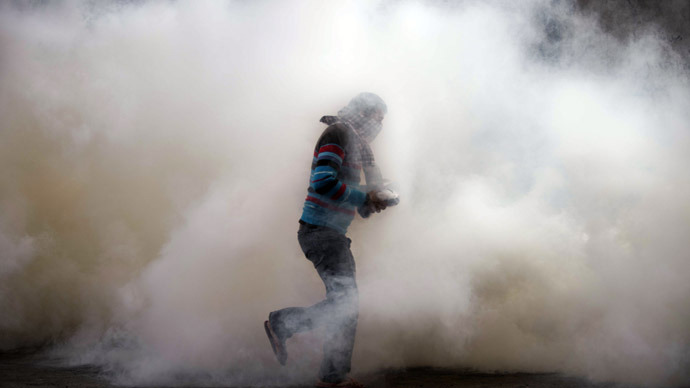Everywhere we look, we see tear gas, beheadings and disease.
Sometimes we respond by spouting our opinion. Often we go as far telling people what they are doing wrong. Or we get hyped up and angry about something that isn’t really about us.
It’s ironic to say this on a blog, a tool created to broadcast opinions, but I think that it’s okay to admit that we don’t always have anything helpful to say on a topic.
Moreover, it’s okay to be speechless about the difficulties others are experiencing.
The great lie of the social media is that if you share an opinion, you’ve helped somehow. But I’m starting to wonder if “having something to say” is making the problem worse.
So how do we respond to hatred, disaster and brokenness?

1. Remember Christmas
The very core of the people of Jesus and their story is Christmas. We are a people shaped by the story of a God who came to us.
Ineffable omnipotent infinity becomes a helpless child of a maligned people group. Our story isn’t about a God who “just fixes problems,” it’s about God experiencing them himself.
Whenever we see the brokenness of the world around us, we should ask “how can I be fully present and experience this moment.” Rather than skipping to broadcasting opinions, which will feel good, we need to feel the pain. Embrace it. Taste it. Take the time to truly identify with those experiencing difficulty.
After all, Jesus took 30 years.
2. Create space for storytelling
How do you know what another person is experiencing? Believe it or not, you just ask.
For most of us (especially extroverts like me) this is a lot harder than it sounds. We need to learn how to ask good questions. We need to make developing active listening skills a priority.
This is why at Austin Mustard Seed we do “Story Nights.” We spend an entire evening listening to one person share a story. Then we ask open-ended, non-leading questions. The goal is that the storyteller feel heard and be able to identify what is God telling them and what they are going to do about it.
3. Do the good you already know to do
I can’t fix Ferguson, stop Isis or cure Ebola.
But there are a lot of good things I can do.
Last week we hosted Jeremy Courtney of Preemptive Love Coalition. For ten years, they’ve been providing life changing heart surgeries for the children of Iraq.
When asked how we could help the situation in Iraq, Courtney replied “make friends with a Muslim.” Being a friend is something most of us know how to do. We also know it changes our world.
If you feel stuck in life or overwhelmed by darkness that you don’t know how to respond to, go back to what you do know.
We don’t need more broadcast opinions or quick solutions. But there are a lot of simple good things we already know how to do.
What is the good that you could do today?
Please click this link to share on Facebook or Twitter.










 Tweets
Tweets